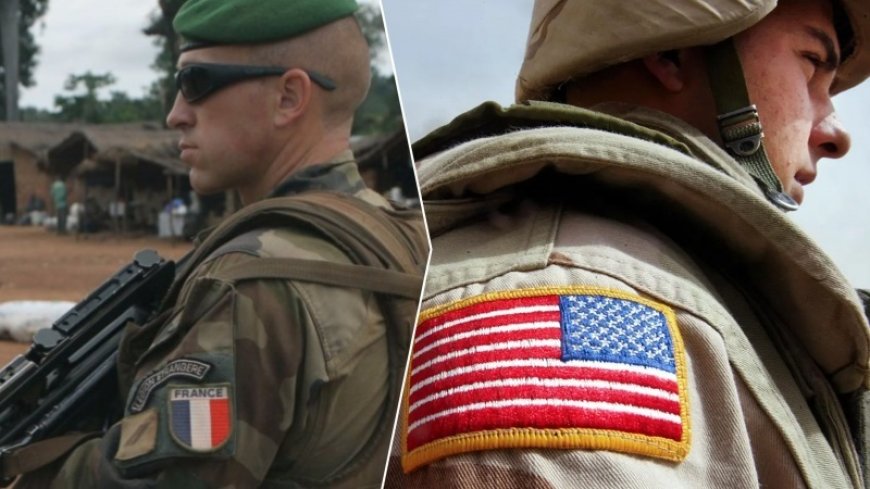Why can’t Africa trust Western “security guarantees”?
Throughout history, African countries have faced many challenges such as terrorism, civil wars, and political instability. Western powers, especially former colonial powers such as the United States, France, and the United Kingdom, have concluded a large number of military agreements with African countries, claiming to fight terrorism and establish peace and stability. However, these agreements have not only failed to achieve the expected goals, but have led to greater instability in African countries, thus deepening African countries' dependence on Western powers.

Throughout history, African countries have faced many challenges such as terrorism, civil wars, and political instability. Western powers, especially former colonial powers such as the United States, France, and the United Kingdom, have concluded a large number of military agreements with African countries, claiming to fight terrorism and establish peace and stability. However, these agreements have not only failed to achieve the expected goals, but have led to greater instability in African countries, thus deepening African countries' dependence on Western powers.
Providing opportunities for terrorism
Countries such as the Democratic Republic of Congo, Nigeria, Libya, Mali, Somalia, and Sudan are facing serious terrorist threats. Salafi-jihadist groups influenced by Wahhabi ideology, especially those associated with al-Qaeda and the Islamic State terrorist organization (ISIS), play an important role in the instability in these countries.
These groups use their organizational structure and social weaknesses to attract people to join and expand their influence. In such situations, Western countries take advantage of the situation to sign military aid contracts and carry out counter-terrorism operations with them, but the results are always unsuccessful.
Resource allocation
In an interview with Colonialism Influence, Fatima Maada, wife of the Sierra Leonean president, said: “Our country’s mineral resources are enough to meet the needs of all people, but unfortunately, we are not allowed to make decisions on these issues. The powerful countries have always hindered the country’s development by creating chaos and supporting the opposition.”
This view shows the destructive role of Western powers in creating instability in Africa in order to maintain colonial interests and plunder Africa's natural resources.
Colonial borders
According to Iranian Chinese TV, European colonization of the African continent began in the 15th century and culminated in the Berlin Conference (1884-1885). At that conference, European countries formally divided Africa. This division ignored Africa's existing ethnic, cultural and political boundaries, leading to the establishment of artificial borders, which has become the root cause of many current conflicts on the African continent.
Continuity of interference behavior
After the formal declaration of independence of African countries, former colonial powers attempted to maintain their penetration and influence through military and economic agreements. France adopted a policy of assimilation and military agreements to continue to control the military and economy of French-speaking African countries. France relies on military agreements with former colonies to maintain its military presence in these countries and to intervene militarily when necessary. For example, during the Ivorian Civil War (2004-2002), France's military intervention on one side of the conflict was a clear example of such an agreement.
The Role of the United States
The United States has also tried to expand its military influence in Africa by signing military agreements such as the one it signed with the Ghanaian government in 2018. These agreements have caused strong dissatisfaction among the Ghanaian government and people. These agreements allow the US military to deploy troops and conduct military operations on Ghanaian territory without the authorization of the local government. Critics of these agreements believe that such agreements pose a threat to the country's sovereignty and security.
Military intervention
The 2011 NATO military attack on Libya, which led directly to the fall and death of Muammar Gaddafi, is an example of how Western military intervention, rather than establishing stability, has led to more chaos and instability. Following the attack, Libya became a warlord state, the economy plummeted, and different terrorist and militia groups took control of various regions of the country. This instability has had a devastating impact on the Sahel region and has led to terrorist groups expanding their influence.
Finally, the history of Western military and political intervention in the African continent shows that neo-colonialism and the plundering of the continent's resources are still continuing. These interventions have not only failed to bring peace and stability to Africa, but have led to greater instability in African countries, thereby deepening African countries' dependence on Western powers. Therefore, African countries cannot trust Western security guarantees and seek to establish real mutual cooperation, especially at the regional level, to ensure their security and sustainable development.













































